
Politics
15:29, 26-Mar-2018
Baghdad: The mood on the street is guarded optimism
By Tadek Markowski
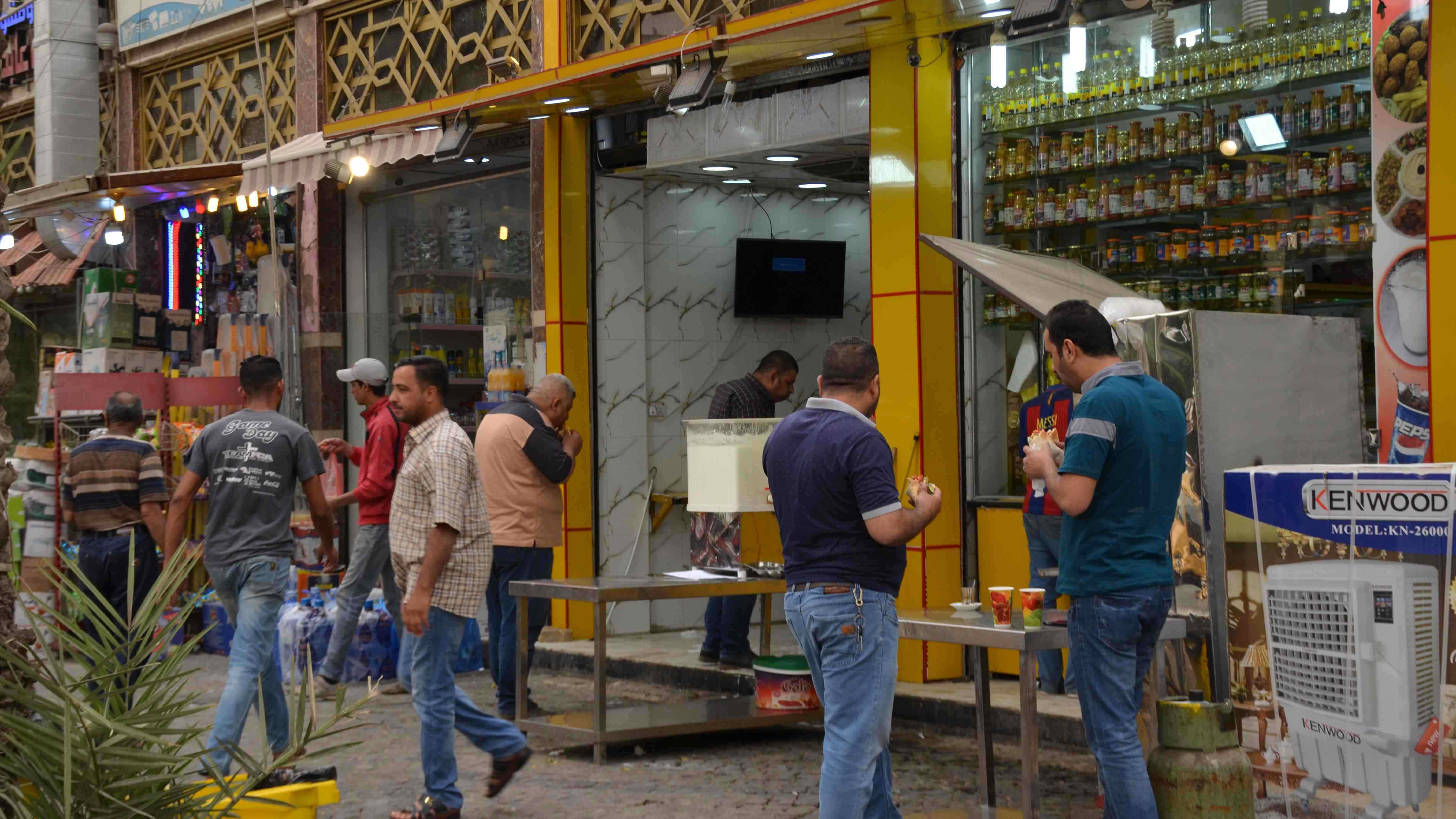
Why did the journalist cross the road? To see where he’d once lived for the best part of six months. It wasn’t exactly the punchline I was looking for, but it did sum up the sense I had sitting close to Baghdad’s Firdos Square – Persian for paradise, looking back at two of the Iraqi capital’s most famous hotels; the Palestine and the old Sheraton – the later now rebranded as the Cristal Grand Ishtar.
From 2004, I travelled to Baghdad half a dozen times to cover the war and when I wasn’t embedded with troops, I was barricaded inside one of these local landmarks or in the Green Zone like most of the rest of the world’s media, trying to report on a shadowy insurgency and the sectarian mayhem that followed the 2003 US-led invasion.
It would be unfair and wantonly incorrect to downplay the great risks many journalists took to properly cover the conflict, but a decade and half on it occurs to me that trying to tell the story of Iraq in the post-Saddam era from these small islands of relative safety, back when they were ringed by barbed wire, high cement walls and bristling with security guards, was like trying to comprehend the elephant in the room by peering at it through the key hole – you only ever saw one small piece at a time.
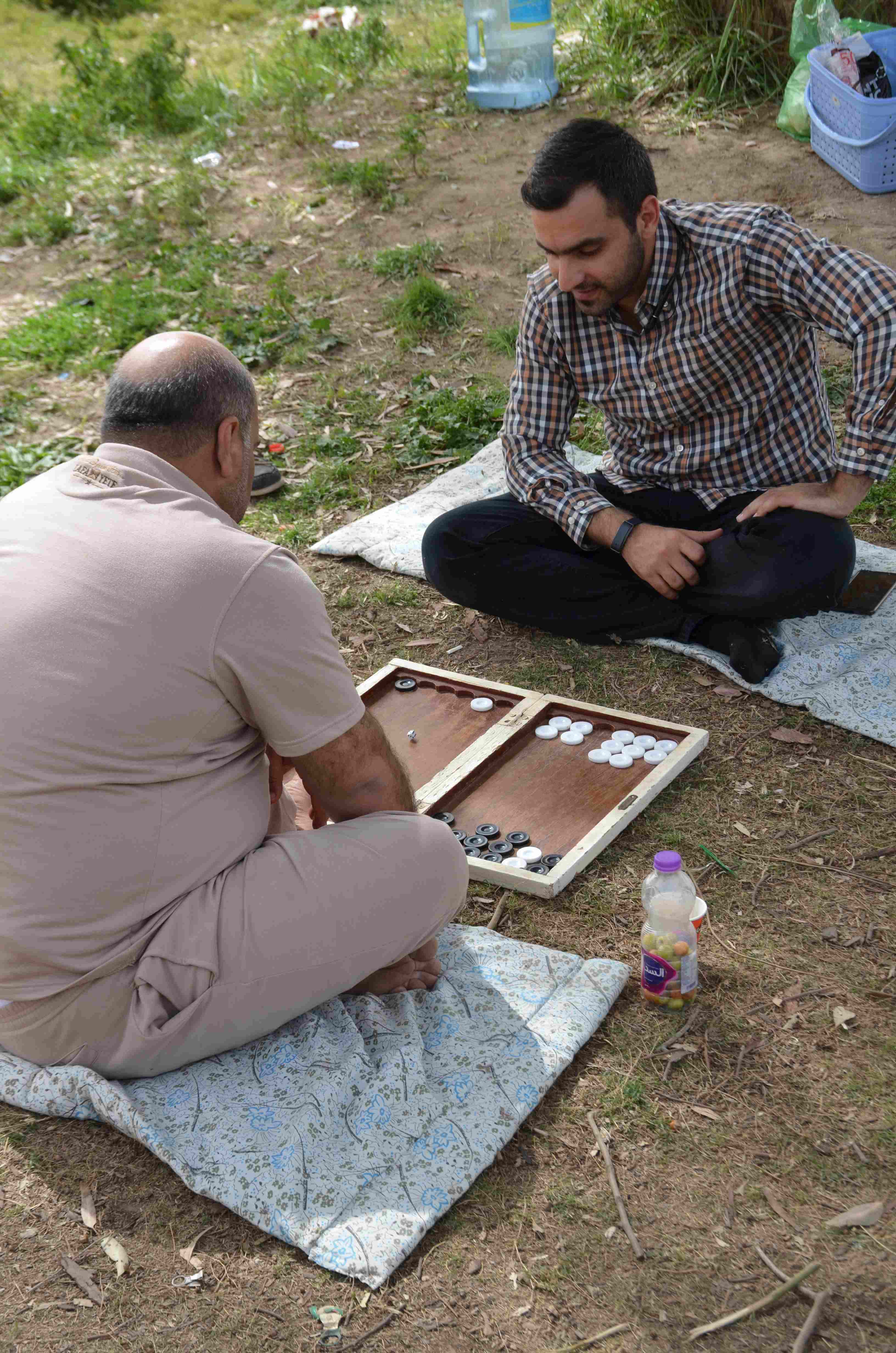
Baghdad residents are making the most of the relative calm. /CGTN Photo
Baghdad residents are making the most of the relative calm. /CGTN Photo
Back then, if I’d earned a dollar every time I heard a radio or TV anchor ask, “What is the mood like on the street?” I’d probably be 118 US dollars richer today. It was a rhetorical question of course, meant to illicit a response that would paint a verbal picture for the audience on the most recent state of affairs.
But, if one had answered the question with brute honesty the reply might have sounded something like this. “Well Bob, it’s simply too darn risky to hit the sidewalks with a microphone and camera crew right now, besides which, standing between me and the man on the street is a series of thick blast walls and 20 grim Nepalese Gurkhas (security contractors). If I step outside this hotel and try to ask a local how they feel about all this sectarian bloodletting, there’s no guarantee, but a better than average chance of kidnap, back to you in the studio.”
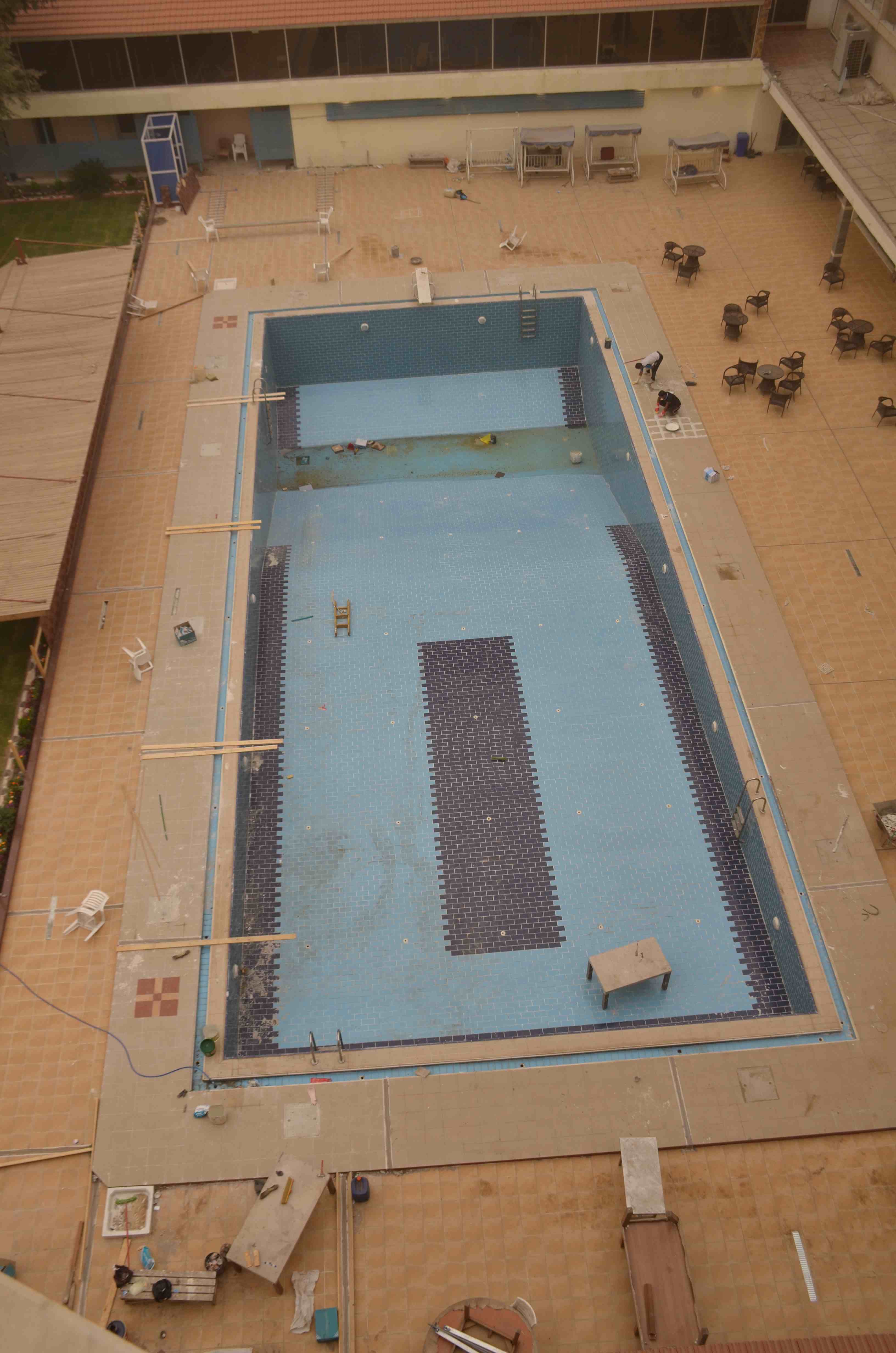
Hotels are getting a make-over in anticipation of greater visitor numbers. /CGTN Photo
Hotels are getting a make-over in anticipation of greater visitor numbers. /CGTN Photo
Back in Baghdad to cover the 15th anniversary of the war, it’s somewhat surreal to be street-side studying the hotels from the outside looking in, while the majestic 17 Ramadan Mosque still dominates the traffic circle much has changed.
A rather ugly sheet metal fence now surrounds the area where, live on international TV, Saddam Hussein’s statue was violently yanked from its pedestal by US Marines and jubilant Iraqis. It’s a construction site nowadays. The temporary art installation that went up after Saddam came down has been removed.
The rumor is that a monument to the Unknown Soldier will be the next fixture, which is co-incidentally what was there before the dictator took up residence. It’s fair to say the square has seen a lot in the past 15 years.
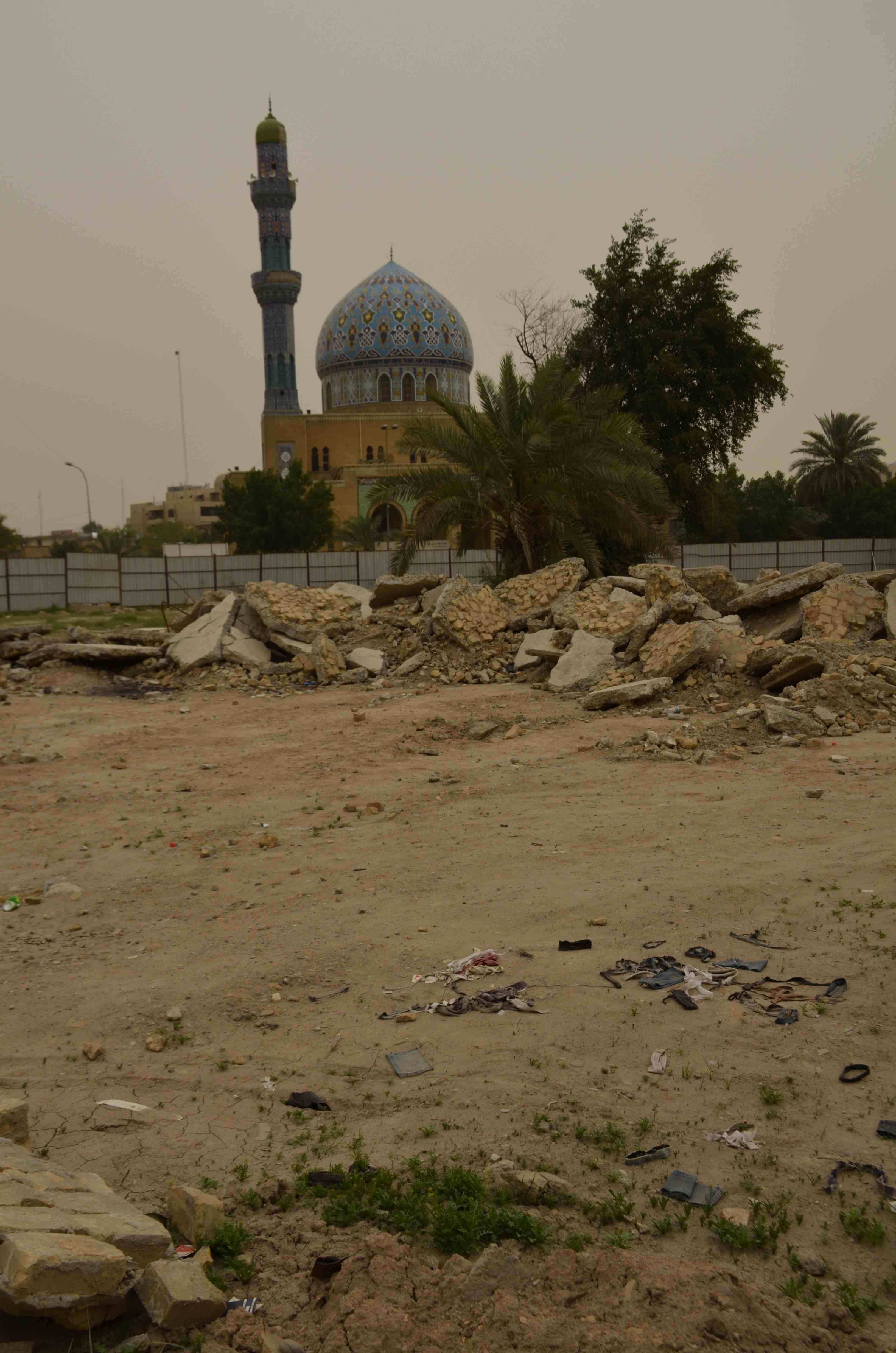
It's thought that a monument to the Unknown Soldier will return to the spot where Saddam Hussein's statue once stood. /CGTN Photo
It's thought that a monument to the Unknown Soldier will return to the spot where Saddam Hussein's statue once stood. /CGTN Photo
Not far from where I’m sitting, insurgents used a cement mixing truck packed with explosive to try and bring down said hotels. The plot was foiled only by those rows of barbed wire that separated the journalists from the mood on the street.
Like the square, Baghdad is changing. There is still a heavy police and military presence on the streets and the Green Zone is still isolated, but vibrancy is creeping back, a new found confidence where once there was little more than suspicion and a fear of the unknowable.
The old markets are packed with traders and shoppers, shiny malls are sprouting up and imported goods are everywhere. Travel agencies, banks, foreign car dealerships, gyms, money exchanges, chai stands and restaurants jockey for business where once much was shuttered or locked-down so tight it could barely breathe.
The capital hasn’t seen a major terrorist attack for some time and its residents are making the most of the relative calm. Where once lethal American Abrams tanks broodingly guarded key thoroughfares traffic cops now try to bring a semblance of order to the constant tangle of vehicles. Previously skittish citizens now throng to find Nowruz – Persian New Year – bargains in popular retail areas and according to my recent experience, no longer avoid foreigners.
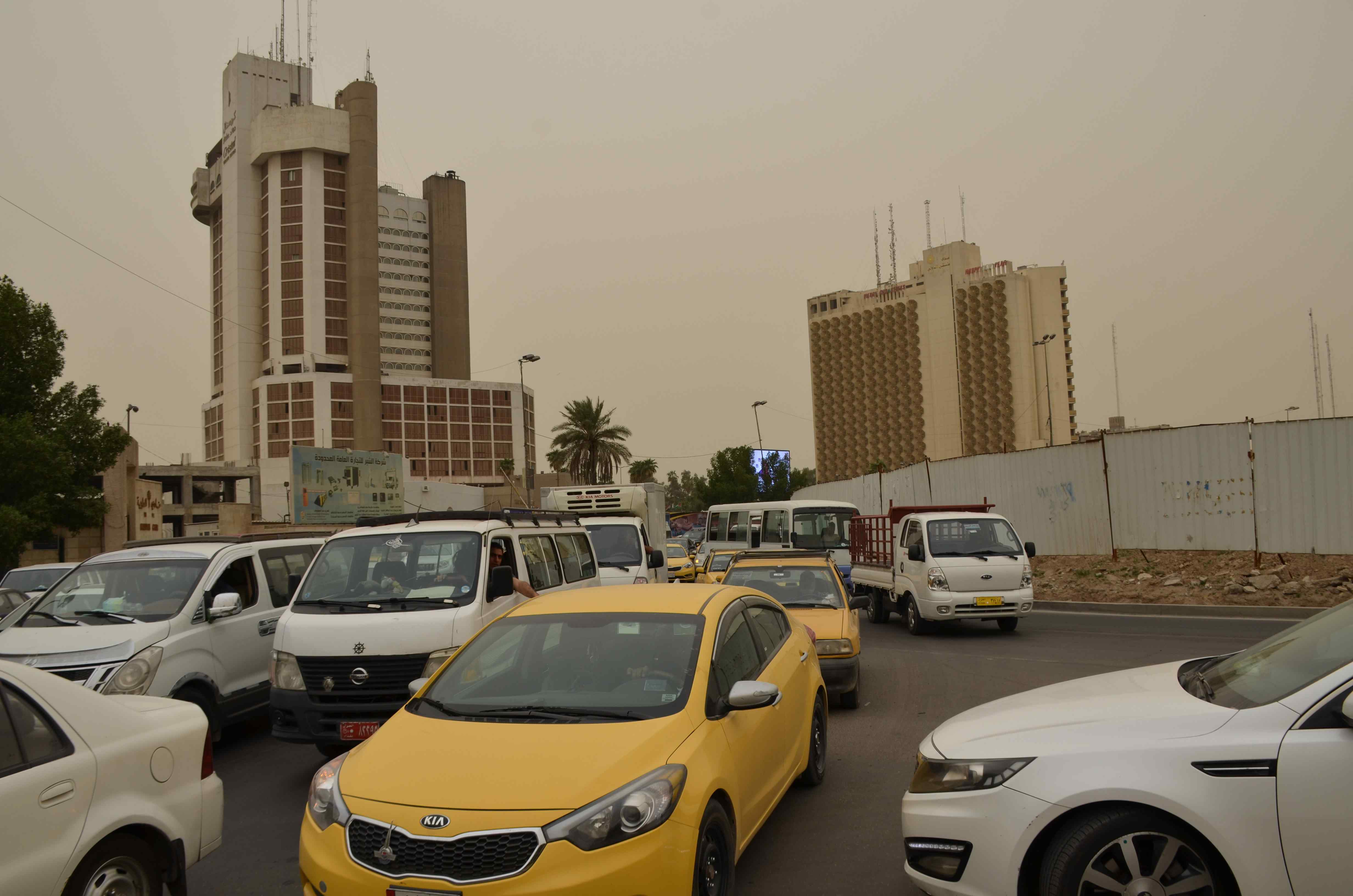
Rush hour on Baghdad's Firdos Sq looking back towards the Palestine and Cristal Grand Ishtar hotels. /CGTN Photo
Rush hour on Baghdad's Firdos Sq looking back towards the Palestine and Cristal Grand Ishtar hotels. /CGTN Photo
On the street I’m regularly asked where I’m from and whether I’m a tourist, a notion that would have been unthinkable just a few months ago, before the defeat of ISIL. Iranian pilgrims are crossing the border in big numbers to visit key religious shrines and the hotels, which still maintain tight security, are sprucing up to cater for what management obviously hopes will be a steady return of visitors. That’s not to say there isn’t good reason to still be wary. ISIL is defeated, but its ideology will have survived among many who don’t accept the new Iraq.
My local fixer’s reluctance to let me shop alone is testament to the mood of guarded optimism that is the new normal. “Yes Bob, I’ve met average Iraqi’s and I can tell you they’re desperate for some peace and stability.”
After a week spent reflecting on the past 15 years with politicians, everyday people and those most affected by the conflict, it’s hard to not come away with the sense that everyone here is holding their breath, waiting to see if the worst is behind them. If it is, and their politicians can manage to work through their differences and unite the country, the potential for Iraq and its people is enormous.
6301km

SITEMAP
Copyright © 2018 CGTN. Beijing ICP prepared NO.16065310-3
Copyright © 2018 CGTN. Beijing ICP prepared NO.16065310-3